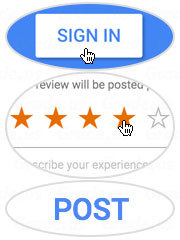Importance of Customer Service Skills in Healthcare
Published - February 13, 2015
As a consumer of healthcare services, you expect that the medical professionals who treat you exhibit good customer service skills. Whether you want a clear understanding of the lump in your breast or you want to understand the latest bill you receive from the doctor’s office, you expect that the person at the other end of the line will treat you with kindness and respect, while giving you the information you need.
Knowing that this is how you want to be treated, it’s easy to understand the importance of possessing exceptional customer service skills if you are pursuing a job in the healthcare industry.
5 Examples of Customer Service Skills in Healthcare Jobs
Here are five examples of everyday interactions that are made better by medical professionals who understand the importance of good customer service:
-
Being Friendly & Interested
If you appear friendly and interested in what a person has to say, they will be more likely to reveal helpful information. For example, if you need to obtain medical history from a patient, you will be more successful if you make eye contact, smile, ask questions and come across as a generally friendly person. Even if the patient information form on your screen requests yes or no answers, you can often learn information that should be included elsewhere in the patient’s record in order to inform the physician or subsequent healthcare workers.
-
Making A Connection
You may have a job where your success depends on the connection that you have with the patient. This is particularly important in jobs in occupational or physical therapy, where the patient’s reaction to you is often critical to their ongoing progress.
-
Anticipating & Meeting The Patient’s Needs
You may need to provide customer service in the broad sense of fully meeting the patient’s needs. For example, if someone comes in for an ultrasound, your basic job is to perform the diagnostic test competently. Offering good customer service means that you will properly schedule appointments so that no patient has to wait too long, treat the person with dignity while they are in your care, answer any questions they have, reassure them, and volunteer certain information about the procedure without overstepping your bounds.
-
Going The Extra Mile
You may need to add service onto the front and back end of your transaction. For example, if your job is working in a retail pharmacy, filling the prescription for a customer and ringing them out at the register is your main job; but, good customer service comes with inquiring if they need information about the medication and contacting their insurance company if necessary to clarify coverages.
-
Listening & Being Compassionate
In dealing with patients, you must keep in mind that they are your customers. It’s not that “the customer is always right,” but they may be under stress from pain and worry about a medical condition or about the ability to pay the bill. While you must follow proper procedures with any job you have, you can always listen and be compassionate.
Combining Customer Service, Science, and Technology in Healthcare Careers
The ability to work with people, science, and technology are what draws many people to healthcare careers. At CBD College, we strive to impart both the medical and on-the-job knowledge you need to understand the importance of customer service skills in healthcare. For information about admission[m9] to our many healthcare programs, contact us today at 877.770.4CBD or 213.427.2200.




